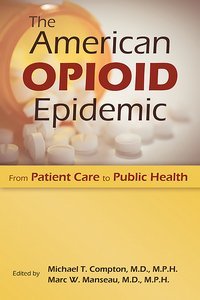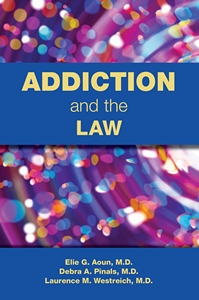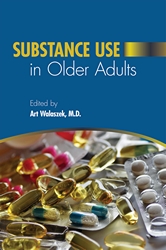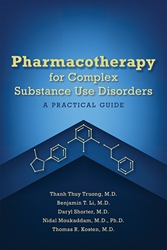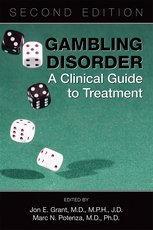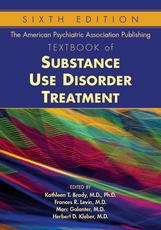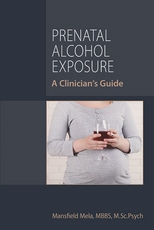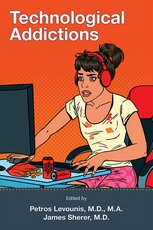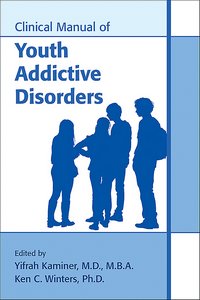The American Opioid Epidemic
From Patient Care to Public Health
View Pricing
Description
The American Opioid Epidemic: From Patient Care to Public Health provides practicing psychiatrists, trainees, and other mental health professionals with the latest information on opioid addiction, including misuse of heroin and other illicit opioids, the role of prescription analgesic opioids, and recent overdose trends. Although highly effective in relieving acute pain, opioids can cause untold damage to people's lives, health, and social structures. Recognizing the efficacy of these drugs when prescribed appropriately, the editors call not for eliminating access or for incarcerating those who are addicted, but for changing the patterns of prescribing and use. The crisis is analyzed by expert contributors from a wide variety of perspectives; they address issues of epidemiology and toxicology, prevention and harm reduction, and common comorbidities. Stressing that prevention and treatment do work, expert contributors provide down-to-earth, public-health-focused strategies that clinicians and public health workers alike will find indispensable. Moreover, the use of clinical vignettes and key chapter points help ground the reader and highlight the most important concepts.
The book is comprehensive in its exploration of all facets of the crisis:
- A thorough overview of prescription opioids is presented, including descriptions of the agents and their physiological effects, details on the origins of the opioid prescription use and misuse epidemic, current national trends in the nonmedical use of these prescription medications, and the consequences of long-term use of prescription opioids, such as the risk of initiating use of heroin and other illegal opioids.
- Screening, assessment, and treatment planning for opioid use disorder is explored in detail, as is the pathophysiology, clinical signs, and management of opioid withdrawal.
- The epidemiology, pathophysiology, and toxicology of opioid-related overdose are covered, guiding clinicians in key principles of overdose management—from evaluation to treatment to prevention. Readers will learn about the pharmacology and clinical use of the main opioid overdose reversal agent, naloxone, as well as the toxic profiles of the most common opioids implicated in overdose deaths.
- The social determinants of the opioid epidemic are addressed from historical, demographic, and socioeconomic perspectives, as well as the pharmaceutical marketing-related, regulatory, and governmental policy-oriented factors that shape health disparities around opioid addiction and its consequences.
- Harm reduction programs, including syringe access programs, overdose prevention education (including naloxone training and dispensing), education for safe injection practices, and facilitating access to opioid agonist treatment, are thoroughly explored. Harm reduction strategies that clinicians can use with individual patients are also discussed.
The American Opioid Epidemic: From Patient Care to Public Health provides an in-depth look at clinical and public health approaches to this epidemic from both psychiatric and medical perspectives and gives mental health professionals the big picture necessary to understand the epidemic, as well as the clinical detail required to help patients avoid or overcome opioid addition.
Contents
- Foreword
- Preface
- Acknowledgments
- Chapter 1. From Fields of Poppies to a National Crisis
- Chapter 2. Prescription Opioids
- Chapter 3. Heroin and Other Illicit Opioids
- Chapter 4. Opioid Overdose, Toxicity, and Poisoning
- Chapter 5. The Opioid Epidemic: Social Determinants and Health Inequities
- Chapter 6. Opioid Use Disorder and Medical Comorbidity
- Chapter 7. Opioid Use Disorder and Psychiatric Comorbidity
- Chapter 8. Assessment and Care of Patients With Opioid Use Disorder
- Chapter 9. Opioid Withdrawal Management and Transition to Treatment
- Chapter 10. Medication-Assisted Treatment for Opioid Use Disorder
- Chapter 11. Psychosocial Approaches to the Treatment of Opioid Use Disorder
- Chapter 12. Harm Reduction: Caring for People Who Misuse Opioids
- Chapter 13. Prevention of Opioid Misuse and Addiction Through Policy Approaches
- Chapter 14. Performance Measures and Quality Improvement for the Opioid Epidemic
- Index
Contributors
- Kavita Babu, M.D.
Leo Beletsky, J.D., M.P.H.
Snehal Bhatt, M.D.
Adam Bisaga, M.D.
Edward W. Boyer, M.D., Ph.D.
S. Brook Burkley, M.S.W.
Michael T. Compton, M.D., M.P.H.
Katherine Devin, M.D.
Karen L. Dugosh, Ph.D.
David S. Festinger, Ph.D.
Carl E. Fisher, M.D.
Bellelizabeth Foster, M.D.
Aaron Fox, M.D., M.S.
Helena Hansen, M.D., Ph.D.
Benjamin Hayes, M.D., M.P.H., M.S.W.
Keith A. Hermanstyne, M.D., M.P.H., M.S.H.P.M.
Vanessa Jacobsohn, M.D.
Abhishek Jain, M.D.
Samuel Kolander, M.D.
Nathan M. Kunzler, M.D.
Marc W. Manseau, M.D., M.P.H.
Leslie Marino, M.D., M.P.H.
Silvia S. Martins, M.D., Ph.D.
William Mathews, R.P.A.-C.
Bethany Medley, M.S.W.
Julie Netherland, Ph.D.
Sarah Oreck, M.D., M.S.
Paul Romo, M.D.
Roxanne Russell, M.D.
Julian Santaella-Tenorio, M.P.H.
Lloyd I. Sederer, M.D.
Luis E. Segura, M.D., M.P.H.
Tyler Seybert, M.D.
Matisyahu Shulman, M.D.
Sharon Stancliff, M.D.
Vitor S. Tardelli, M.D., M.P.H.
Leila M. Vaezazizi, M.D.
Arthur Robin Williams, M.D., M.B.E.
Tauheed Zaman, M.D.
About the Authors
Michael T. Compton, M.D., M.P.H., is Professor of Clinical Psychiatry at Columbia University College of Physicians and Surgeons in New York City.
Marc W. Manseau, M.D., M.P.H., is Clinical Assistant Professor of Psychiatry at New York University School of Medicine in New York City.
Related Products
Carousel Control - items will scroll by tabbing through them, otherwise arrows can be used to scroll one item at a time
